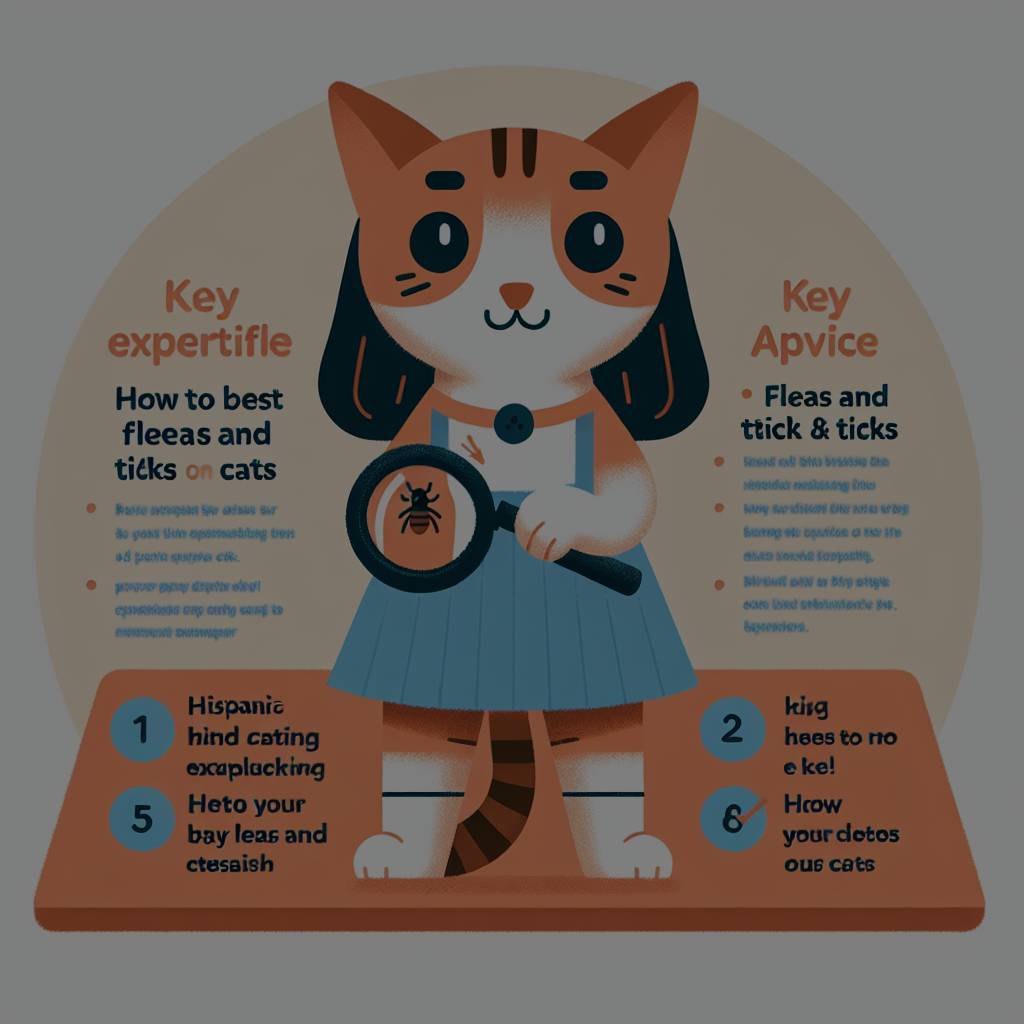
Feline Flea and Tick Care: Expert Advice for Cats
Fleas and ticks are not only a nuisance for cats but can also lead to serious health issues if left untreated. As a responsible cat owner, it is essential to understand the risks associated with these pesky parasites and take the necessary measures to protect your feline friend. In this article, we will provide expert advice on understanding, preventing, and treating flea and tick infestations in cats, as well as tips for maintaining a flea-free home.
Understanding Feline Fleas and Ticks
Fleas and ticks are small parasites that feed on the blood of animals, including cats. Fleas are typically more common, but both can cause considerable discomfort and health problems for your cat. Fleas are known to cause skin irritations, allergies, anemia, and can even transmit diseases. Ticks, on the other hand, can transmit serious diseases such as Lyme disease and can cause anemia and paralysis in severe cases.
Essential Tips for Preventing Infestations
Prevention is the key when it comes to flea and tick infestations in cats. Here are some essential tips to help keep your feline friend safe:
-
Use preventative products: Consult your veterinarian for suitable flea and tick prevention products specifically designed for cats. These may include topical treatments, oral medications, collars, or sprays. Regularly apply or administer these preventive products as directed to ensure continuous protection.
-
Keep your cat indoors: While it is not always possible, keeping your cat indoors can significantly reduce their exposure to fleas and ticks. These parasites are commonly found in grassy areas, so limiting outdoor access can minimize the chances of infestation.
-
Maintain a clean environment: Regularly vacuum your home, paying special attention to areas where your cat spends most of their time. Wash your cat’s bedding frequently in hot water to kill any fleas or ticks that may be present. Additionally, trim tall grass and shrubs in your yard to discourage fleas and ticks from taking up residence.
Effective Treatment Options for Cats
If your cat is already infested with fleas or ticks, it is crucial to take immediate action. Here are some effective treatment options:
-
Spot-on treatments: These are topical treatments applied directly to your cat’s skin. They work by killing fleas and ticks on contact and provide long-lasting protection.
-
Oral medications: Oral medications are another effective method for treating fleas and ticks in cats. These medications can kill the parasites quickly and are often recommended for severe infestations.
-
Shampoos and sprays: Flea and tick shampoos and sprays can be used to kill and repel these parasites. However, they are typically less effective than spot-on treatments or oral medications and may need to be used in combination with other treatments.
Remember to always consult your veterinarian before starting any treatment to ensure you are using the most appropriate and safe options for your cat.
Expert Advice on Maintaining a Flea-Free Home
Treating your cat for fleas and ticks is just one part of the equation. To maintain a flea-free home, consider the following expert advice:
-
Regularly groom your cat: Frequent brushing helps remove any fleas or ticks that may be hiding in your cat’s fur. Be sure to inspect for any signs of infestation, such as flea dirt or tiny black specks, which indicate flea feces.
-
Clean and vacuum thoroughly: Regularly clean and vacuum your home, paying attention to areas where fleas and ticks may hide, such as carpets, upholstery, and cracks in the floor. Dispose of the vacuum bag or empty the canister immediately after use.
-
Treat your yard: If your cat spends time outdoors, it is essential to treat your yard for fleas and ticks. Consult with a professional pest control service or use pet-safe yard sprays to eliminate these parasites from your outdoor environment.
By understanding, preventing, and treating flea and tick infestations in cats, you can ensure the well-being and comfort of your feline companion, while also maintaining a healthy home environment for both your pet and your family.
Remember, the best defense against fleas and ticks is prevention. Regularly consult with your veterinarian, follow their advice, and keep up with regular treatments to protect your cat from these pesky parasites. With proper care and attention, you can keep your furry friend safe and flea-free all year round.
If you’re interested in learning more about the health and well-being of your feline friend, you might want to check out additional information on common household pests. Speaking of parasites, you might be interested in reading about the **life cycle of fleas** and how they can affect not only pets but also humans. Understanding the **biology of ticks** and their potential to spread diseases is crucial for effective prevention. You may also find it helpful to learn about **general feline health** to ensure a holistic approach to your cat’s care. Lastly, ensuring a flea-free home is important; hence, knowing more about **Integrated Pest Management** strategies can provide valuable insights.










